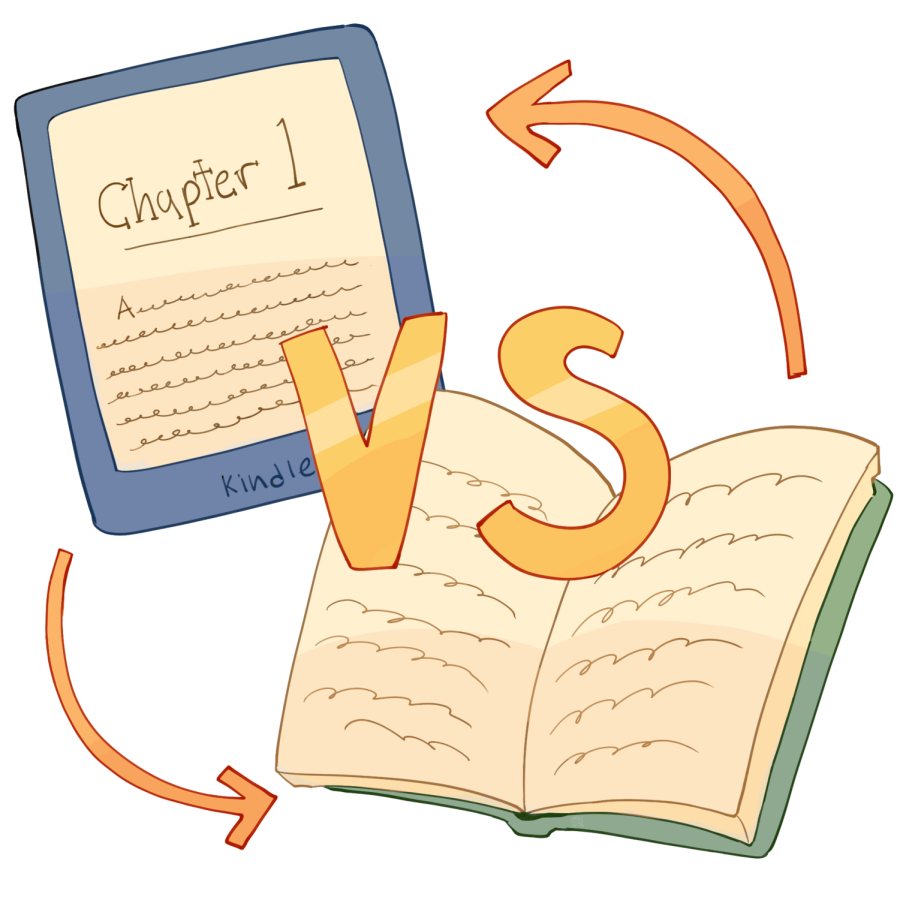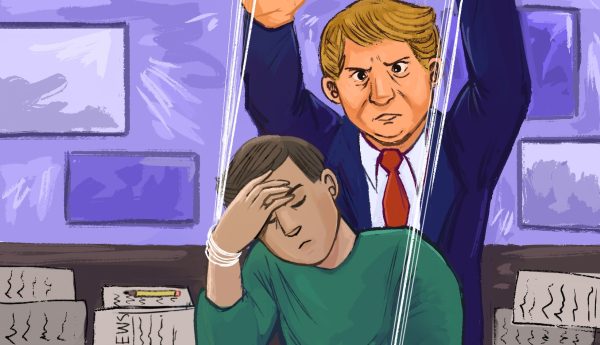Why Kindle is superior to paper books
“Kindle is far superior to physical books. What’s more, it has the capacity to reignite a generation’s lost love of reading.”
eReaders, digital devices designed for reading, have caused a storm in recent years. When Amazon’s Kindle hit the market in 2007, it was met with a wave of criticism from avid readers bemoaning change and innovation. Many rallied against what they perceived as a threat to the charm of traditional physical books. People are still up in arms—just last year The Atlantic ran a piece titled “E-books Are an Abomination.”
I previously aligned myself with this committed faction. I saw Kindle as another destructive form of technology destined to ruin the simple, preferable way of life. Then, I got one of my own. I am now convinced that the Kindle is far superior to physical books. What’s more, it has the capacity to reignite a generation’s lost love of reading.
My desire for a Kindle emerged while waiting in a two-hour-long line at Disney World this past winter break. I’m the kind of person who likes to be productive all of the time. I hate the idea of wasting precious minutes. So naturally, I’m not someone who likes to wait in line. My go-to move during situations like this is to do work on my phone. I’ll edit a few articles and then have the urge to read.
There are a couple of logistical problems with this—first, reading on an iPhone drains battery incredibly fast. Second, a phone is about ⅛ the size of a regular book, so it requires constant zooming in and scrolling across pages. And there’s the problem of getting a book on a phone in the first place.
With a Kindle, these issues are solved. I bring my Kindle wherever I go: on walks with my dog, to the grocery store, and to school. A Kindle’s battery lasts for weeks at a time with constant use. It’s decently portable, especially compared to a book. Instead of having to carry around stacks of heavy books which I inevitably end up forgetting at home, I can just slip my Kindle, which weighs less than a pound, into my backpack. It’s virtually impossible to walk down a high school hallway while reading. Not only do you have to use both hands to hold the book, but your peripheral vision is completely blocked. Reading on a Kindle while walking down a hallway is as easy as scrolling through notifications on a phone.
Unlike books that will get torn, stained, and bent, a Kindle can endure the harshest weather without a scratch. Newer additions are even waterproof, meaning you are able to read in the shower. This is a special perk for perfectionists like me who hate people borrowing their books for fear of them coming back with dog-eared corners.
With a Kindle, you will easily end up tripling your reading time. The ease of transportation and storage means you will end up reading at every spare break in the day—while going to the bathroom, brushing your teeth, or preparing a snack. But it’s not just about the quantity of reading; Kindles are superior in quality as well.
The wide array of features on this incredibly smart digital reader make reading easier than ever. No need for bookmarks, Kindle will save your page when you power off. Are you someone who can’t stand small print or large margins in books? You can customize it all on a Kindle. You’ve likely been told that it’s bad for your eyes to read at night. Kindle’s automatic warmth adjustment and ability to change brightness and coloration allows for reading at any time of the day.
There are additional benefits of a Kindle that surprised me upon delivery. Since it connects to WiFi (though you don’t need WiFi to read, another perk), Kindle has an experimental web browser which can come in handy if you want to read reviews of a book upon finishing. Some may doubt whether this capability would distract from reading, but I find it doesn’t. The experimental browser isn’t as smooth to use as a phone or tablet. Since Kindle is designed for reading, web use is considerably more challenging.
An additional invaluable benefit of the Kindle is that it lets you look up vocabulary on the spot. I’ve always been suspicious of claims that reading increases vocabulary. It seems as though most often we simply skip words that we don’t know when reading a new book since the effort of looking up the new word is not worth it. But on a Kindle, to look up an unfamiliar word all you have to do is tap and hold. A dictionary pops up along with the Wikipedia entry related to the specific word. I’ve found myself learning far more words through this feature than I ever had reading books in the past.
Kindles are also cost-effective, one of the considerations I had in mind when purchasing. I realized that every year I spent significant amounts of money buying books. I try to borrow from libraries as much as I can, but it can be a hassle when titles are unavailable or not even offered. Kindle books are not only cheaper but often free. eBooks frequently have no waits at the library, meaning you can instantly borrow through the click of a screen and begin reading that same day.
That being said, there is room for improvement. Initially, I thought the best feature of the Kindle is the ease of taking notes. All you have to do is scroll over the text to highlight it and then you can type in any annotations which will be saved automatically. I found this a huge win as I type faster than I write on post-it notes. But while taking notes on a Kindle is much easier, looking back at them is a different story. In order to see notes from the beginning of the book, you have to either export them to your computer or scroll endlessly. The process is more complicated than simply identifying a post-it note in a novel.
For the same reason, it’s harder to go back through a Kindle to find information at the beginning of the book. Thus, while Kindles are better for reading for fun, physical books may still win the day when it comes to reading for information or school. It should also be mentioned that research has found reading comprehension to be better for physical books. This probably has to do with the fact that learning is partially tactical and the act of physically holding a book and putting a finger on the text can increase neurological association with it.
But as Kindle continually releases new and improved versions, there is no doubt these issues will be resolved. Overall, if you are looking to read more and enjoy what you’re reading, a Kindle is a great investment. Join the digital reading revolution today!

Hannah Owens Pierre is thrilled to return for her third year on Zephyrus as a senior and Editor-in-Chief. When she’s not getting into heated debates...

Maggie is the Art Director as her 3rd year on staff. She spends her time Drawing at her desk, taking inspiration from her own world and the stories around...







Gunin Gogoi • Oct 3, 2024 at 12:34 pm
I liked your content. Many thanks 😊